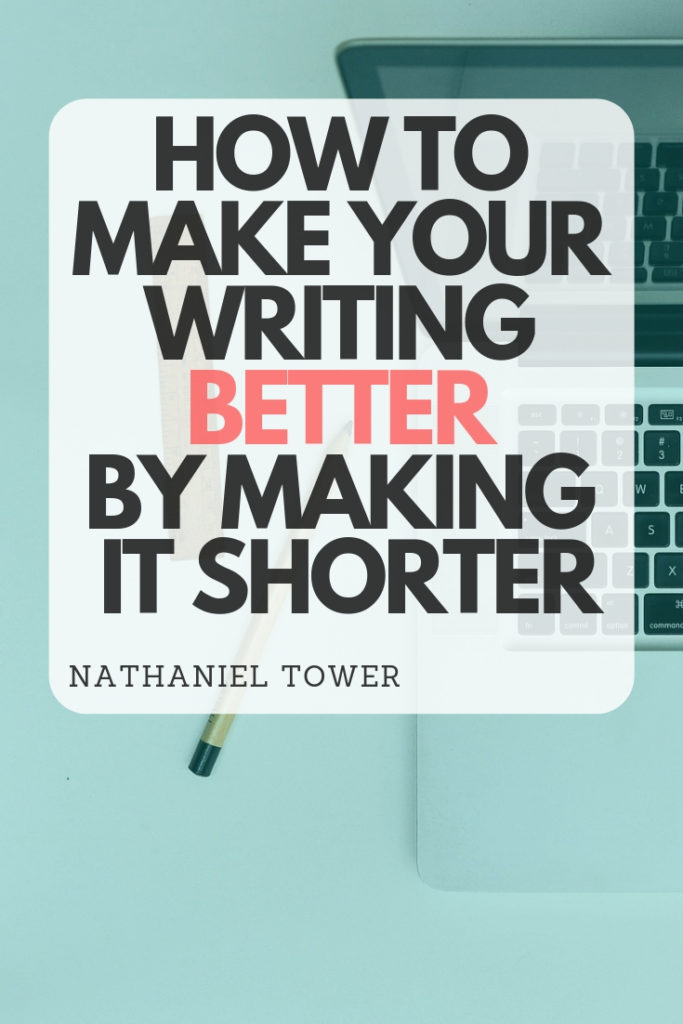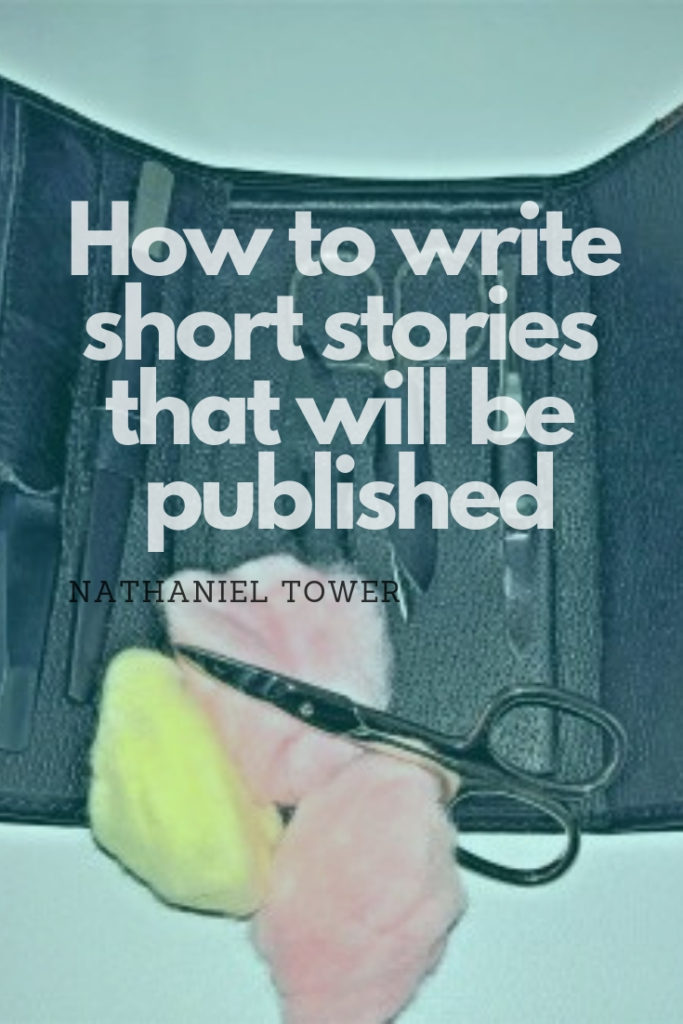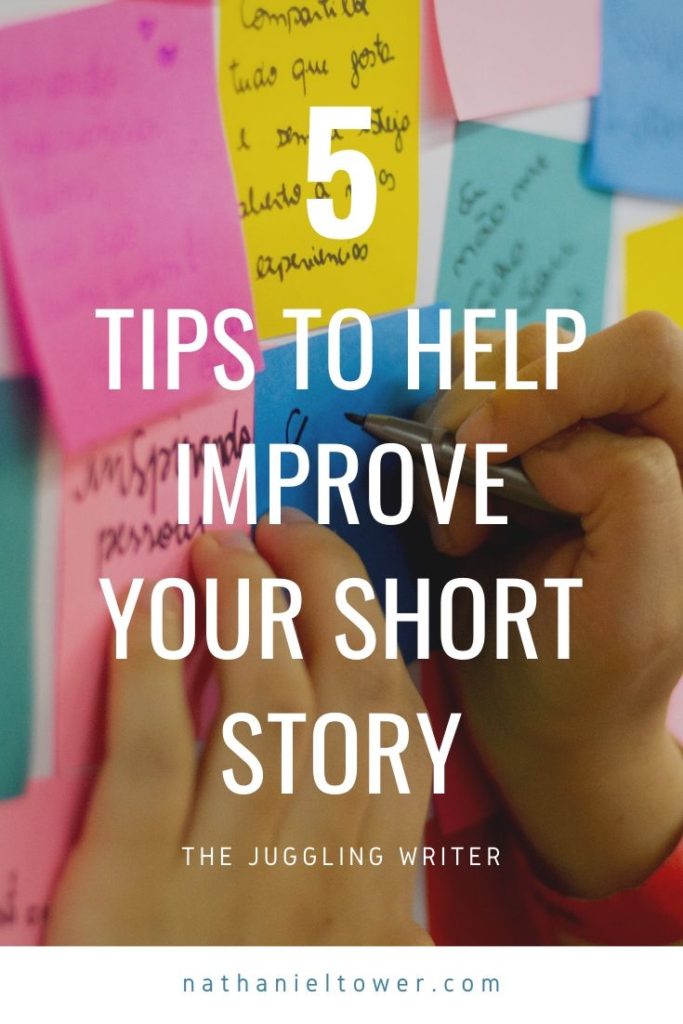Last Updated on July 18, 2020 by Nathaniel Tower
You’ve probably noticed that most publications these days have a pretty tight word count. It can be quite challenging to find a place to send your 7,800-word story. Hell, it’s hard to even find a place that wants to publish something over 3,000 words.
Stories with no homes
This leaves me with a lot of stories I can’t really do anything with. Right now I’m working on getting an 11,800-word story published. It’s one of the best stories I’ve written. But guess what? Nobody publishes that length. So I have the best story I’ve ever written and I can’t do a damn thing with it.
Or can I? I don’t know about you, but I tend to overwrite on my first draft. It often takes me too many words and too many pages to get to the end of the story the first time around. There are a number of reasons for this:
- I get distracted by fun or interesting subplots or rabbit holes
- I just write rather than worrying about the words I’m using
- I overdo descriptions
- I think more is more when it comes to the first draft
And that’s just the short of it. Whatever the reason, just about every rough draft is longer than the final draft. And most times, it takes several drafts to get there. I often think I have a final draft long before I do. What I need is a shorter story.
The need for a shorter story
The demand for even shorter stories shouldn’t come as a surprise. We’re living in a world where people read on tiny screens and want to do everything in a hurry. Online publications aren’t going to publish an 8,000-word story because no one is going to stare at a computer screen long enough to read 8,000 words.
Shorter is all the rage. There are almost as many flash fiction markets as there are long fiction markets. And by long fiction, I mean everything over 1,000 words. Do you know how long it takes me to write 1,000 words of a story? Usually a lot less than an hour. It takes a lot more time to re-read the story and cut it down to its proper length.
It’s a bit of a paradox, I suppose. Long stories often come together faster than short stories. As Blaise Pascal (and a bunch of other people) once said, “If I had more time, I would have written a shorter letter.”
So let’s take this lesson in brevity and talk about how to write a shorter story. Here’s how I usually make it happen.
Delete your best lines
Everything I’ve ever written has had at least one line in it that I thought was awesome. But guess what? These lines are almost never necessary to the story. So why did they make it into the story in the first place? Well, as writers, our brains are constantly churning out great ideas. Sometimes those ideas come out at the wrong time, like in the middle of a story we’re writing. We cherish these lines, but they often stick out of our stories like beautiful, swollen thumbs. In most cases, as much as it pains us, we should delete them.
Get rid of the subplots
Are you sitting on a 6,000-word story that you can’t send anywhere because no one accepts 6,000-word stories? I guarantee there’s at least one subplot in that story that doesn’t need to be there. Get rid of it. You don’t need those tangents, subplots, asides, or whatever you want to call them. Make it tight. Make everything connect to the main plot. You might be able to save 10-20% of your story right here.
Stop over-developing characters
Every story that’s too long has unnecessary character development. This usually comes in the form of pointless backstory (we don’t need to know anything about a character that isn’t relevant to the immediate story) or in the form of character description (please, tell us more about the character’s cool outfit!). In a short story, character development should always come naturally, never in the form of long-winded past accounts or detailed accounts of what their faces look like.
Delete every 4th (or so) word
Okay, I clearly don’t mean this literally. But if you really want to cut a story, make it your goal to chop out about 25% of the words. Yes, that sounds extreme, and you probably won’t actually get near the 25% mark. But it’s almost always possible for you as a writer to say the same thing in fewer words without losing any impact. Take the sentence I just wrote. I could have written, “You can almost always say the same thing in fewer words without losing anything.” There. I just took a 22-word sentence down to 14. And I lost nothing. There are tons of sentences exactly like that sentence in the story that you’re trying to edit down to fewer words right now. Look, I did it again! That sentence was way longer than it needed to be.
Remove everything that isn’t completely necessary
Does the reader need to know that little detail about which side of the street your character was walking on? Would it matter if the character walked on the other side? If not, then you definitely don’t need that detail. Does it make a difference what your character is watching or reading or listening to? Probably not. Your reader isn’t interested in reading a longer story that tells the same story with a few extra details that don’t resonate. .
The advantages of shorter stories
Shorter is almost always better. When was the last time you read a story or a novel and said, “Damn, I wish that had been longer!”
Why make your story shorter?
- Shorter stories are more likely to be accepted (or at least you have more options for places to submit them)
- Your reader will like the shorter version better
- Shorter stories typically involve more editing and therefore end up being objectively better
Of course, I’m not saying that every shorter story is better than every longer story. And obviously there’s a limit. You can’t cut a 10,000-word story down to 5 words. It clearly won’t be the same story with the same impact at that point. But you can almost always trim a bit of fat.
Whatever you do, don’t send that 3,100-word story to a publication whose maximum word count is 3,000 words. Find a way to cut at least 100 words first. And if you can’t do that, then maybe you should hire an editor.
What are your secrets to trimming the fat out of your stories? Share your tips in the comments. And be sure to share this post on all your favorite platforms.




I once had to trim a story for publication by about 1,000 words (a quarter of its length) so it could be read in a podcast. I honestly trimmed most of the word count by adding conjunctions and de-formalizing the speech of the demons I was writing about. And while I do love to worldbuild everywhere, it did help to cut some of it out and leave a little more mystery for my audience.
Thanks for sharing your experience. Sounds like you really followed the “cut every 4th word” rule on that one. Congrats on the publication!
Thanks for sharing your experience. Post a link to the story so we can all read/listen!
Really useful post. I struggle to write short stories as I love writing novels so much but I still need to edit at the end to take out what I call ‘waffle’. Anything not needed must go but it’s hard to be ruthless when you really love a piece.
Glad you found this useful. It’s definitely hard to be ruthless when you love a piece, but your piece will thank you in the end. Just today I knocked over 700 words off a story I really love, and now I love it even more.
My favorite rule of writing:
Omit needless words.
-Strunk and White
What’s a publishable story
A publishable story is one that is fit to be published by a professional publication. In other words, it is in a good state that makes it highly likely to be accepted and published.
Thanks.an d may you please give me an example of a publishable story about any person